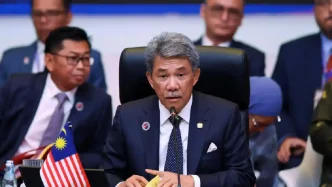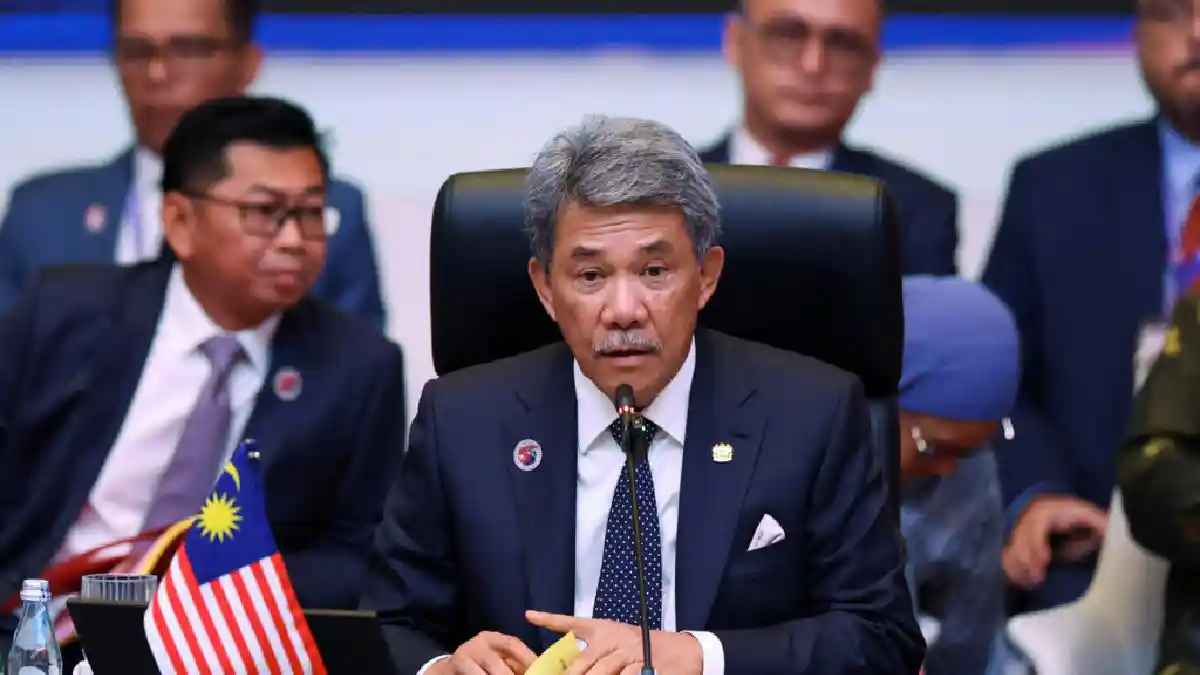In a critical call to action, Malaysian Prime Minister Anwar Ibrahim has urged ASEAN foreign and economic ministers to present a united front against looming tariff threats that could destabilize the region’s economic stability. Speaking at a recent gathering of regional leaders, Anwar emphasized the need for solidarity among the Association of Southeast Asian Nations (ASEAN) to safeguard collective interests amidst growing global trade tensions. His remarks come as the bloc faces potential economic challenges from external pressures, particularly in the form of tariffs that could disrupt trade flows and hinder growth across member states.
Urgency for Unity in ASEAN
Anwar’s appeal for cohesion among ASEAN ministers underscores the fragility of the region’s economic landscape in the face of international trade disputes. With global powers increasingly resorting to protectionist measures, the Malaysian leader warned that individual responses from member states would be insufficient to counter the impact of tariffs. Instead, he advocated for a coordinated strategy that leverages ASEAN’s collective bargaining power to negotiate better terms and protect regional markets.
The Malaysian Prime Minister highlighted that ASEAN, as a bloc representing over 650 million people and a combined GDP of approximately US$3.6 trillion, holds significant influence on the global stage. However, this influence can only be wielded effectively through unity. Without a harmonized approach, smaller economies within the bloc risk being disproportionately affected by trade barriers, potentially exacerbating existing inequalities among member states.
Global Trade Tensions and ASEAN’s Vulnerability
The backdrop to Anwar’s call is a world increasingly defined by trade wars and economic nationalism. Major economies, including the United States and the European Union, have in recent years imposed or threatened tariffs on goods from various regions, citing national security, unfair trade practices, or environmental concerns. For ASEAN, a region heavily reliant on exports—ranging from electronics in Vietnam to palm oil in Malaysia and Indonesia—such measures pose a direct threat to economic growth.
Malaysia, in particular, stands to lose significantly from disruptions in global trade. The country’s economy is deeply integrated into international supply chains, with key sectors like manufacturing and agriculture dependent on export markets. Anwar’s administration has been vocal about the need to diversify economic partnerships, but the immediate challenge of potential tariffs requires a more urgent, collective response from ASEAN.
According to local reports, Anwar stressed that foreign and economic ministers must align their policies to address these external pressures. A unified stance could involve joint negotiations with major trading partners or the development of intra-ASEAN trade agreements to reduce reliance on external markets. Such measures, while complex, are seen as essential to maintaining the region’s economic resilience.
Historical Context of ASEAN Solidarity
ASEAN has a history of navigating economic challenges through collaboration, though not without difficulties. Formed in 1967, the bloc has evolved from a primarily political alliance into an economic powerhouse with initiatives like the ASEAN Free Trade Area (AFTA) and the Regional Comprehensive Economic Partnership (RCEP), one of the world’s largest trade agreements. These frameworks have helped member states reduce trade barriers internally and strengthen their position in global markets.
However, the diversity of ASEAN’s economies—ranging from high-income Singapore to developing nations like Laos and Cambodia—often complicates consensus on economic policies. Anwar’s push for unity is thus both a reminder of past successes and a recognition of the hurdles ahead. The Malaysian leader’s vision appears to be rooted in the belief that only through shared goals can ASEAN weather the current storm of global trade uncertainties.
Analysts note that previous instances of external economic pressure, such as the Asian Financial Crisis of 1997-1998, tested ASEAN’s resilience. While the bloc emerged stronger through coordinated recovery efforts, the current tariff threats differ in scope and origin, emanating from powerful external actors rather than internal financial mismanagement. This shift necessitates a more outward-looking strategy, one that Anwar seems determined to champion.
Challenges to Regional Cohesion
Despite the compelling case for unity, achieving it within ASEAN is no small feat. Member states often prioritize national interests over regional ones, leading to fragmented responses to shared challenges. For instance, while Malaysia and Singapore may have the resources to adapt to tariff impositions through economic diversification, less developed members like Myanmar or Cambodia could face severe setbacks without significant support.
Political differences further complicate matters. ASEAN operates on a principle of non-interference, which, while preserving sovereignty, can hinder decisive collective action. Anwar’s call for unity will likely require navigating these diplomatic sensitivities, ensuring that no member feels marginalized in the pursuit of a common agenda. Additionally, ongoing geopolitical tensions in the region, such as disputes in the South China Sea, could divert attention from economic priorities, making consensus even harder to achieve.
Another layer of complexity is the varying levels of exposure to tariff risks among ASEAN countries. Vietnam, for example, has benefited from trade diversions caused by US-China tensions, positioning itself as an alternative manufacturing hub. In contrast, countries like Thailand, with strong ties to specific export markets, may face greater immediate risks. Balancing these disparities in a unified policy framework will be a significant test of ASEAN’s diplomatic and economic mechanisms.
Malaysia’s Role and Anwar’s Vision
As one of ASEAN’s founding members, Malaysia has often positioned itself as a mediator within the bloc, advocating for inclusive growth and regional stability. Anwar Ibrahim, who has led the country since November 2022, brings a reformist perspective to this role. His administration has prioritized economic transformation alongside social justice, and his latest remarks on ASEAN unity reflect a broader ambition to elevate Malaysia’s influence in regional affairs.
Anwar’s emphasis on economic ministers working alongside foreign ministers suggests a dual approach: combining diplomatic outreach with policy innovation. This strategy could see ASEAN not only defending against tariff threats but also proactively shaping global trade narratives to favor the region’s interests. For Malaysia, this aligns with domestic goals of strengthening economic sovereignty while maintaining its status as a key player in Southeast Asia.
Observers suggest that Anwar’s leadership style—marked by a blend of pragmatism and idealism—could be pivotal in rallying ASEAN leaders. His government has already initiated bilateral discussions with neighboring countries to align on trade issues, potentially laying the groundwork for broader regional consensus. Whether this momentum can translate into actionable ASEAN-wide policies remains to be seen.
Looking Ahead: A Test for ASEAN
As tariff threats loom larger on the horizon, ASEAN stands at a crossroads. Anwar Ibrahim’s call for unity among foreign and economic ministers is a timely reminder of the bloc’s potential to act as a formidable collective force. Yet, the path to achieving this unity is fraught with challenges, from economic disparities to political divergences among member states.
The coming months will likely reveal whether ASEAN can rise to the occasion, forging a coordinated response that protects its shared economic interests. For now, Malaysia’s leadership under Anwar offers a glimpse of hope, pushing for a collaborative spirit that could redefine the region’s approach to global trade challenges. As discussions among ministers continue, the question remains: can ASEAN transform this moment of uncertainty into an opportunity for deeper integration?















